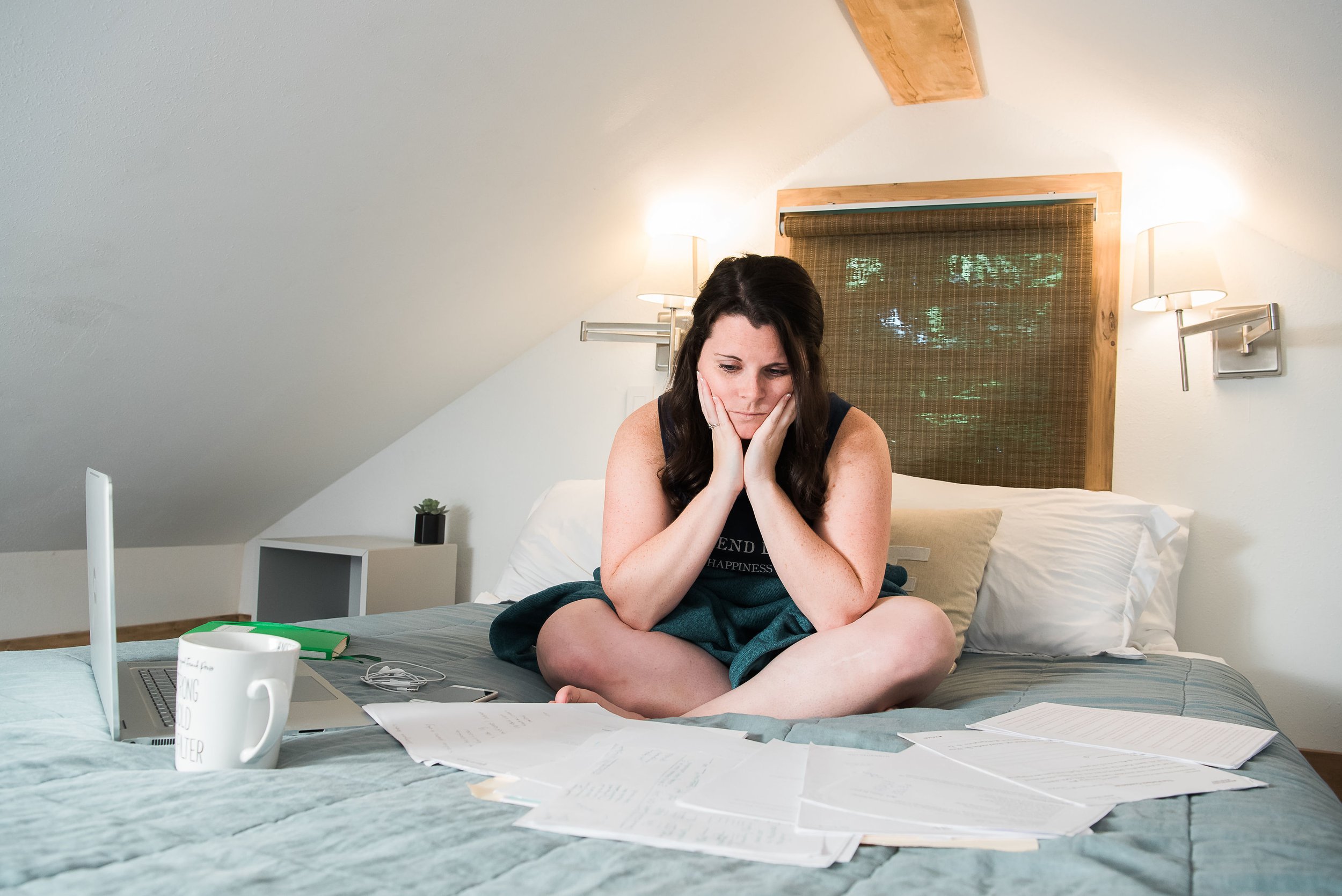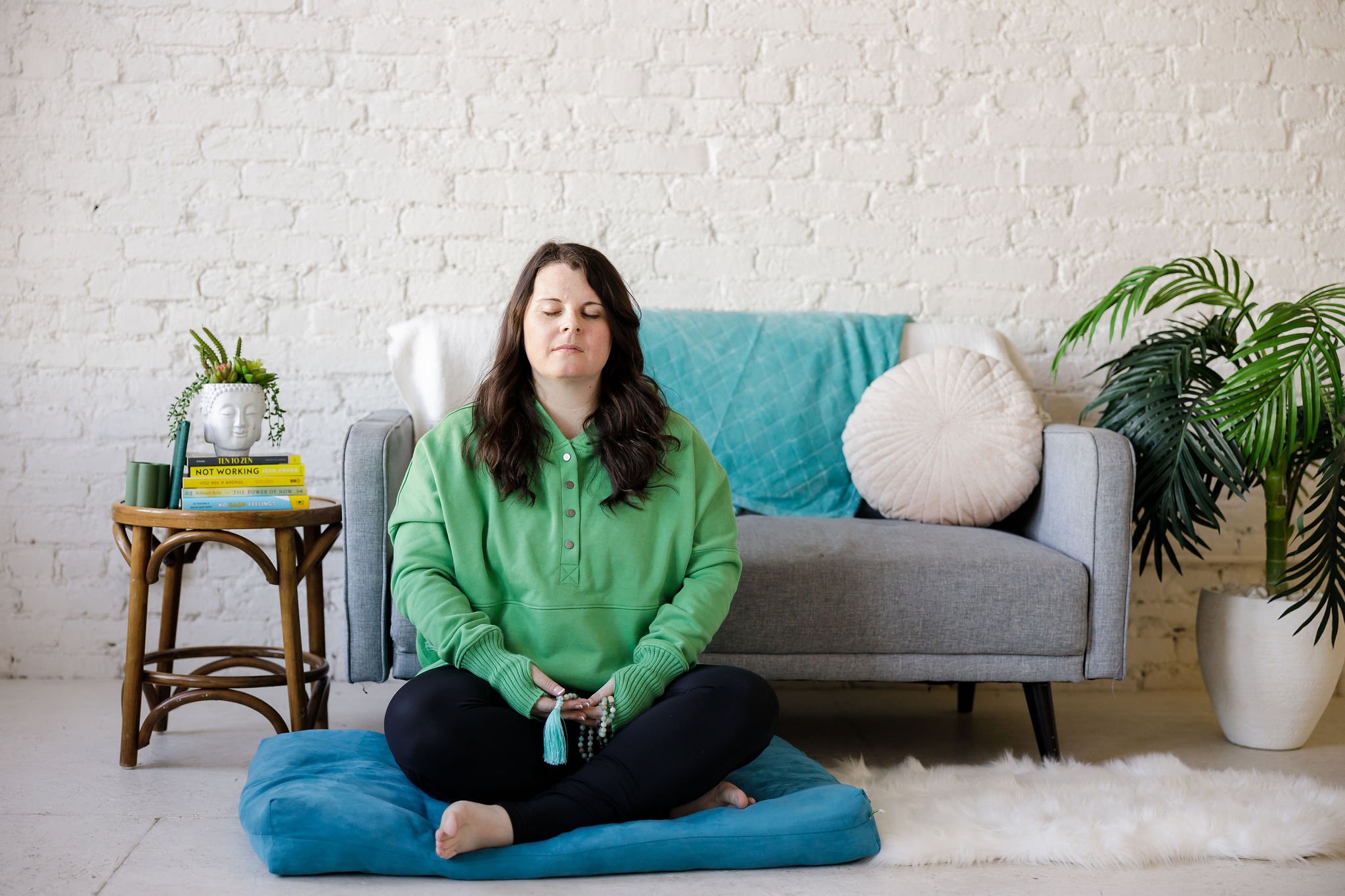Your Burnout Type...
You’re PHYSICALLY Burned Out…
(bookmark this page!)
You my friend are flat-out exhausted! Tired AF! Strung OUT! And I get it...
Physical burnout is one of the most rampant types of burnout. It's also the most common. Unlike other types of burnout, physical burnout doesn't fly under the radar and is pretty damn hard to ignore.
But, that works to our advantage because then we have some straight-forward, dare-I-say easy things we can implement to help us overcome it!
So, let’s get into it...
Physical Burnout Resources:
While boredom burnout is one that’s least studied and least known, physical burnout is probably the one that we often think of as typical “burnout”. It’s characterization is physical - exhaustion, fatique, etc. So, as such I want to approach this one from the perspective of what we typically know about burnout.
Firstly, burnout was coined in the 1970s. A German-born American psychologist, Herbert J. Freudenberger, coined the term when he found himself succumbing to stress to the point of not being able to get out of bed for a family vacation. So, he analyzed himself. He recorded himself on a tape recorder and found that it wasn’t just exhaustion - it was beyond that. However, it also wasn’t depression. He called his illness burnout - named after the drug addicts he’d seen nearby with blank looks and burnt-out cigarettes. Read more about the founding here >>
The good thing about physical burnout is that it’s one of the easiest to recognize. While the others are no-less debilitating, they can fly under the radar with a little bit more stealth than physical burnout can. Regardless, let’s start with some signs…
Signs of physical burnout.
Feeling like no amount of sleep, rest, or relaxation makes you feel better. There’s a difference between tiredness and the kind of fatigue and exhaustion that comes with physical burnout. It’s on another level from just “feeling tired" every so often. It’s a chronic state and you feel like you can never recover.
Getting sick more frequently. Like it or not, when we’re stressed it seriously knocks our immune systems and we’re more susceptible to illness. This could be a cold or the flu, or it could be “normal” things like headaches, stomach aches, or heart palpitations.
Changes in your basic self-care patterns (sleep, eating, etc.). Loss of appetite and lack of restful sleep are extreme signs of physical burnout.
Things to try to overcome physical burnout.
Make self-care easy. I think part of the reason why we physically burnout and deprioritize our self-care is because we make it too hard. So, here are some tips to make your self-care easier…
For exercise, work out from home. Check out my fitness resources for recommendations on at-home workouts, which I believe to be the easier way to incorporate fitness into your lifestyle. For an extra boost to your daily energy, try working out in the morning.
For hydration, keep a water bottle with you at all times.
For healthy eating, meal prep to give yourself healthy meals that you can grab and pre-heat quickly.
For sleep, check out my resource page for all my go-to sleep tools and tips.
Create morning and evening routines that support your physical health. I personally have found that some of the best ways to support myself when I’m physically burned out are to create routines that do just that. I swear by my morning routine for self-care, especially because this is where I incorporate my exercise. I also swear by my evening routine for getting me ready for quality sleep.
Create opportunities for rest. Are you physically burned out because you’re deprioritizing sleep? Seriously. Consider that question for a second. Many of us millennial professionals have been raised in an “I’ll sleep when I’m dead” culture, but that is literally one of the most bullshit lies we’ve ever been told about productivity and achievement. Sleep is going to be the gateway drug to being your best self, you’ve just been convinced otherwise. But I’ve read enough about sleep debt, sleep deprivation, and the healing powers of sleep to know different. So, do yourself a favor and prioritize the following:
Get good sleep. I don’t care who you are. I don’t care what bullshit story you’ve read. You need more sleep. You’re not the exception to the rule and you need to prioritize getting at least 7 hours of sleep. These have been enough scientific studies done on sleep debt and deprivation that stress the importance of it - and stress that you’re basically a functional drunk if you don’t get it - that I just don’t believe the bullshit about being able to survive on less. Disagree? Show me your data that says otherwise…
Head to my resource page for some of my fave sleep hacks!
Schedule breaks. No, marathon work hours don’t make you more productive. Trust me, i’ve tried. The human brain isn’t capable of focusing for more than 60 mins. Beyond that, we’re much more distractible and our focus wanes significantly. So, do yourself a favor - get up and move your body every single hour for at least 5-10 minutes.
Schedule time-off. I’ll admit, I suck at this one. In my day-job, I’m a glorified contractor and your girl’s got bills to pay - so I don’t take that much time off. But if you’re salaried - whether you’ve got a big job or not - there is no reason for you to not be taking your vacation. There is NO reason for you to be working 10-12 hour days, like many of the clients I’ve worked with when they’ve gotten started. There is literally NO excuse for that. You’ve got too much work to do? Delegate. You get paid a lot and therefore you feel like you should? Okay…I bet your job also qualifies you for benefits, a 401K and a certain amount of vacation each year, am I right? Then TAKE IT. Your superiors aren’t forcing you to run yourself ragged. #Realtalk? You’re letting them.
Focus on health. There are some tried-and-true health tips that really do help boost your energy—healthy diet, hydration, and exercise. Healthy diet makes your body run better. Hydration gives you an energetic boost because 75% of your body is made of water. Exercise is not only naturally helps with stress and other mental health struggles, but also boosts your energy and your mood.
Try meditation, yoga, or breathing techniques. People who struggle with physical burnout need to do one very important thing - slow down. Meditation and yoga are exactly what you need! Beyond slowing you down, they force you to breathe and oxygenate your body. In fact, there are tons of breathing exercises out there that are meant to help you specifically with energy. Check out some of the great options below:
Go outside more in the morning. Our circadian rhythms dictate a lot about our energy levels. A good way to boost yours is to make sure you’re going outside in the morning and getting that hit of Vitamin D from natural sunlight. Not only will this give you a boost of energy but it will also help you get better sleep!
Consider taking Magnesium. Magnesium is responsible for a metric shit ton of things in the body and as such has a huge affect on our energy. There are certian foods that are high in this nturient - leafy greens, some nuts, etc. - but it’s damn hard to get sufficient amounts just from our diets. Magnesium is actually one of the few supplements I take. You can also apply magnesium topically for added sleep benefit.
What about your organization?
Do you feel like your organization is experiencing physical burnout? If so, all of the above recommendations stand, but they are obviously individual fixes. So, what can you do at an organizational level?
Promote wellness and movement throughout the day. It could be as simply as a manager modelling movement breaks or a team-wide Slack message encouraging people to move. It could also be taking walking meetings instead of sitting ones.
Provide wellness perks. These could be incentivized movement and fitness programs, access to corporate wellness packages, gym memberships, etc. Check out my EAP alternative for small businesses >>
General respect for work hours. We all know sleep is important, so not sending messages before work hours officially start or in the evening encourages disconnection, allows time for self-care, and allows your employees to get a proper amount of sleep. IF you have to send the email, schedule it to go out the next morning.
Questions/journal prompts to think about:
What can I do in this moment to give myself more nourishment and self-care?
At a time when I felt energized and on fire, what was I doing to support myself?
Which people do I admire for their energy and vitality? How could I be more like them?
What is something that I’ve always wanted to do to support my physical self and how can I start incorporating that into my day-to-day life?
What can you do to take better care of yourself? How can you make more time to allow yourself time to relax and breathe?
How do I feel about the importance of practicing self-care?
What are the obstacles to practicing self-care daily? How can I overcome at least one of them?
How do I want to feel in my day-to-day life and how can self-care help me get there?
When I’m really busy, how can I find 10 minutes of time for myself? What can I do in that time?
Other things to try/consider:
Work with a coach to not only get the accountability you might need to re-prioritize your physical vitality but to help uncover new ideas to get there. Apply for a call here >>











